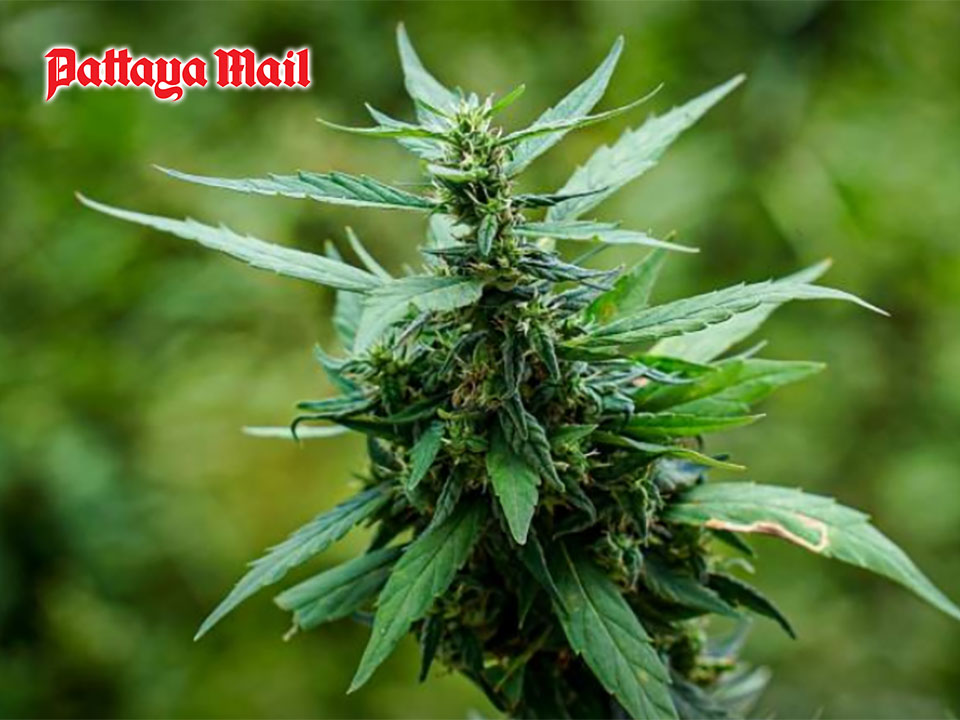
WWW.PATTAYAMAIL.COM
Thailand’s political parties clash over cannabis, turning medical users into collateral damage
“Medical use only — Supachai Jaisamut defends Bhumjaithai’s stance, warns re-criminalizing cannabis harms patients, not criminals.”
PATTAYA, Thailand – Supachai Jaisamut, head of the legal affairs for the Bhumjaithai Party, has strongly criticized Public Health Minister Somsak Thepsuthin for his recent moves to reclassify cannabis as a narcotic. He questioned the legal authority behind such actions and reaffirmed that Bhumjaithai supports cannabis use solely for medical purposes.
Supachai responded to statements made by Trichada Srithada, spokesperson for the Ministry of Public Health, labeling her claims that Bhumjaithai supports recreational cannabis and illegal dispensaries as false. He clarified that the party had submitted a Cannabis and Hemp Control Bill to Parliament, designed strictly for medical use, and that the draft had been reviewed and approved by a parliamentary committee composed of members from multiple parties — including Pheu Thai — as well as health officials, legal experts, and academics.
The Ministry of Public Health later submitted its own draft, which, according to Supachai, largely copied Bhumjaithai’s version with only minor modifications. “Nowhere in either draft is recreational use mentioned,” he said, adding that those criticizing the bill without understanding its content “have only mouths, not minds.”
Supachai further accused Minister Somsak of inaction during his tenure: “Illegal cannabis shops have been spreading like wildfire for two years under Somsak’s watch as Health Minister. Nothing was done until now. What were you doing for two years? Suddenly now there’s a crackdown — is it because Bhumjaithai left the coalition government?”
He reiterated Bhumjaithai’s full support for shutting down illegal cannabis dispensaries and prosecuting those who abuse the system. However, he placed the blame for the proliferation of such shops squarely on the Ministry of Public Health’s failure to regulate the industry.
“Bhumjaithai fires back: Supachai Jaisamut slams Public Health Minister for cannabis policy U-turn and two years of inaction.”
In response to Somsak’s remark that the Cannabis Bill was a “fantasy,” Supachai asked pointedly what the minister meant. He warned that attempting to reclassify cannabis as a narcotic again — against the intent of the existing Narcotics Code, which removed cannabis from the list — would be an abuse of power. “The law doesn’t allow the minister to unilaterally reverse such decisions through a ministerial announcement.”
Supachai argued that such a move would only drive cannabis back underground and criminalize patients once again. “In the past, patients who used cannabis for legitimate medical reasons were arrested. Do you really think reclassifying it as a narcotic will make people stop using it? If you criminalize medical cannabis use, the prisons will overflow with sick people.”
He concluded by stressing that all policymaking must prioritize public benefit. While Bhumjaithai supports law enforcement against illegal operations, he opposes reversing policy in a way that would harm law-abiding medical cannabis users.
Adding to the chorus of concern is Decha Siripat, a respected traditional medicine practitioner and founder of the Khao Kwan Foundation in Suphan Buri. Decha, who developed a well-known medicinal cannabis oil formula, warned that recent actions by the government risk plunging the industry and patients into chaos.
“Since cannabis was removed from the narcotics list in June 2022, it has never truly been ‘free’,” Decha said. “Strict regulations still apply to cultivation and sales, and the real issue lies in weak law enforcement and inconsistent oversight — not legalization itself.”
Decha questioned why authorities, particularly under Minister Somsak, waited two years before cracking down on illegal dispensaries, only to act aggressively after political alliances shifted.
Traditional healer Decha Siripat warns that sudden cannabis policy shifts risk harming patients and pushing the market underground.
He also strongly opposed the reclassification of cannabis as a narcotic, arguing that no country in the world has reversed such a decision after legalizing it.
“This is about politics, not public health,” Decha said. “If you really care about health impacts, you should worry more about alcohol and tobacco. They cause far more disease and accidents, yet are promoted even on Buddhist holidays.”
While Decha personally supports regulated recreational use, his core concern remains protecting patient access to affordable medical cannabis. “People use cannabis to manage stress, and stress leads to NCDs like diabetes and cancer. Isn’t it better to use cannabis than tobacco or alcohol, which actually cause disease?”
He warned that sudden regulatory changes — such as reclassifying cannabis as a narcotic within 45 days — would devastate legal businesses and drive parts of the market back underground, fueling black-market sales, forged prescriptions, and increased prices.
“If you must regulate, do it through a proper Cannabis Control Act passed by Parliament — not by unstable ministry announcements that can change at any time,” Decha added. “We need legal certainty and time for businesses and patients to adapt.”
As the political debate intensifies, Decha and many in the medical cannabis community fear that a public health breakthrough is at risk of becoming yet another casualty of political gamesmanship.
0 Commentarios
0 Acciones
4 Views


